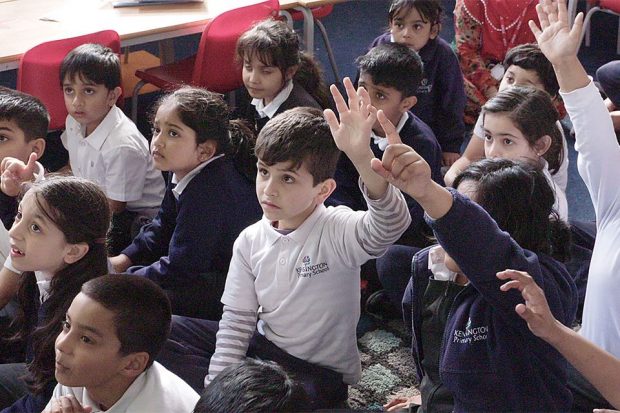
Today’s Education in the Media blog looks at the annual publication of Schools, Pupils and their Characteristics data, graduate student loans and the first Tourism Sector Deal, as announced by the Prime Minister today.
Class Sizes
Yesterday, Thursday 27 June, the Department for Education published annual data on Schools, Pupils and their Characteristics. The release provides data from the annual school census, which includes pupil level and school level information, including the number and proportion of pupils who claim free school meals or have English as an additional language, the proportion of pupils in large classes and number of pupils in pupil referral units. The story runs in the Sun, Metro, Express and the i.
This government has created around 920,000 school places since 2010 and remain on track to create one million by 2020.
A Department for Education spokesperson said:
There are more children in our schools than ever before and as these statistics show, our world class education system continues to rise to the challenge. At secondary, average class sizes remain low at only 21.7 pupils, while the average primary class has remained stable at 27.1 - despite an increase of almost 540,000 pupils since 2010. The number of infant classes containing 30 or more pupils has also decreased – for the fourth year in a row.
We’ve created around 920,000 school places since 2010 and remain on track to create one million by 2020. Coupled with the rising standards in our schools, this government is ensuring every child benefits from the education they deserve.
Student Loans
Yesterday, Thursday 27 June, the department published Student Loan Forecasts, England: 2018 to 2019. The publication presents forecasts of higher education student numbers, student loan outlay and student loan repayments in England for financial years 2018-19 to 2023-24 and academic years covering the same period. This was covered in the Mail, Times, i and Telegraph.
The Education Secretary highlighted how the statistics show how progressive the higher education system is, ensuring that our world-class education system is widely available.
Education Secretary Damian Hinds said:
It is often overlooked just how much the Government, and therefore the taxpayer, contributes to student loans being taken out in England. Student loans are unlike commercial loans, in a number of different ways – but fundamentally because you don’t have to pay unless you’re earning over the income threshold, and after 30 years it is written off.
A subsidy of around 45% is a substantial amount, but a deliberate design of the system intended to make sure our world-class education is open to anyone who can benefit from it.
Today’s figures highlight just how progressive our system is, but also reiterates the need for universities to deliver value for money on courses – not just for students, but the taxpayer as well.
Tourism Sector Deal
Today the Prime Minister announced the UK’s first ever tourism sector deal, reaffirming the UK’s global role as a key player in the industry. The new deal will revolutionise the way data is used by the sector, through the creation of new Tourism Data Hub. The deal will also support the creation of an additional 10,000 apprenticeships for people building their careers in the tourism and hospitality sectors. News of the deal was covered today in the Sun.
Prime Minister Theresa May said:
As one of the most visited countries in the world, the UK is a world leader in international tourism and it is crucial that we remain globally competitive to meet growing demands.
That’s why today I am pleased to announce the UK’s first ever tourism sector deal, ensuring that we continue to innovate, boost connectivity and economic productivity, expand career pathways and break down barriers for visitors with disabilities.
This deal recognises the important role tourism plays, and will continue to play, in showcasing what our great country has to offer.
Follow us on Twitter and don't forget to sign up for email alerts.